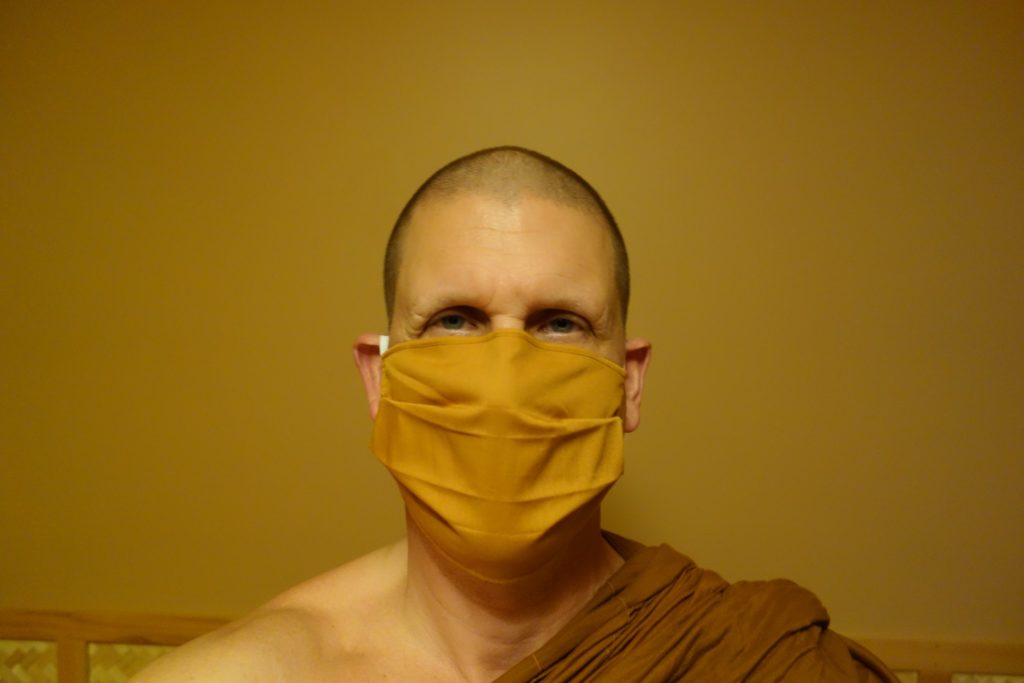By Ajahn Chandako,
Vimutti Buddhist Monastery, New Zealand
18 March 2020
The Buddha made it clear that there are legitimate dangers in the world, and there is a wise way to respond to them. He also said there is a great amount of self-created fear that unnecessarily creates suffering for ourselves and others. As the coronavirus takes hold around the globe, it is understandable that people are afraid, but it is also a valuable opportunity to understand fear and differentiate between the wise and the unwise. The Buddha repeatedly emphasised that samsara is a dangerous place. Clearly seeing the dangers of acting on our greed, anger and delusion is intelligent and responsible. Being cautiously wary of the painful results of unwholesome kamma is smart and beneficial. The wise response to recognising these dangers is not to live in fear, but to change one’s priorities in life so that our thoughts and behaviour incline towards safety, security and happiness. Most people, however, are in denial to some degree about these true dangers.
The other extreme is to be anxious and panicky about things that don’t exist. The majority of the issues people worry about are merely thoughts in their minds, and there is no limit to the thoughts about what could potentially go wrong in the future. Even when everything is perfect, we can ruin it by worrying about the future. If this fear and worry become habitual, we will never truly enjoy life. We will never know peace of mind.
Why is it that one of the central definitions of the First Noble Truth is old age, sickness and death? Because these confront us all. Sickness doesn’t simply refer to the inconvenience of having a cold or sore muscles, but points to the very real life-threatening diseases that expose the frailty of our human bodies.
The wise response to sickness and death is to avoid the extremes of denial and panic. When people avoid looking at death, avoid making peace with it, this sets them up for being overwhelmed by fear and anxiety when they are forced to admit its reality. The wise response, the wise fear, is a calm recognition of the actual dangers we face. With clear and sustained awareness, we then objectively observe our emotional reactions to these dangers. If we see pain or suffering in our heart, then we must be holding onto something. What is it? What is it exactly? Is there fear of losing that which we love? Only when we see where we are holding on can we let go. Only when we see that grasping and clinging cause suffering, is it then clear that this is not in our best interest. We will then naturally incline towards happiness as we understand ourselves better. When we see certain fears as unwarranted, unjustified and unhelpful, then the foolish fears fall away by themselves. What’s left is joy.
Contemplating sickness, especially while we are still healthy, isn’t meant to kill joy, but is actually a source of true joy. Fear is then replaced by relief and gratitude.
Ajahn Chandako, “Wise Fear vs Foolish Fear In the Time of Coronavirus.” Facebook, 18 March 2020, https://www.facebook.com/VimuttiBuddhistMonastery/posts/1516823271826308


